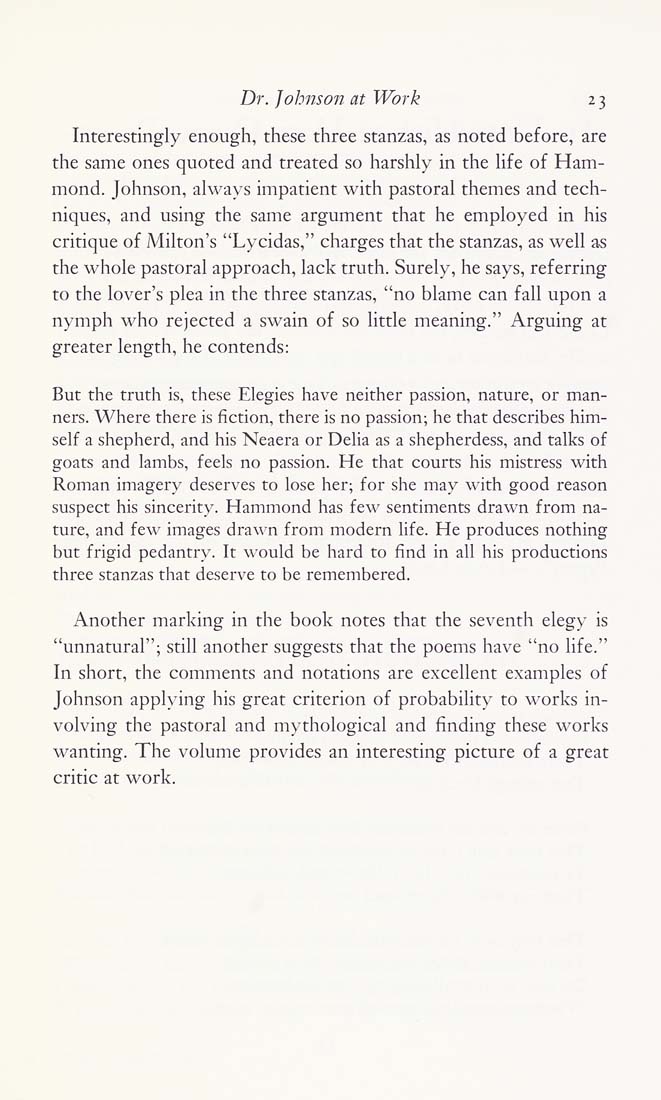Columbia Library columns (v.10(1960Nov-1961May))
(New York : Friends of the Columbia Libraries. )
|
||
|
|
|
|
| v.10,no.1(1960:Nov): Page 23 |

Dr. Johnson at Work 13 Interestingly- enough, these three stanzas, as noted before, are the same ones quoted and treated so harshly in the life of Ham¬ mond. Johnson, always impatient with pastoral themes and tech¬ niques, and using the same argument that he employed in his critique of Milton's "Lycidas," charges that the stanzas, as well as the whole pastoral approach, lack truth. Surely, he says, referring to the lover's plea in the three stanzas, "no blame can fall upon a nymph who rejected a swain of so little meaning." Arguing at greater length, he contends: But the truth is, these Elegies have neither passion, nature, or man¬ ners. Where there is fiction, there is no passion; he that describes him¬ self a shepherd, and his Neaera or Delia as a shepherdess, and talks of goats and lambs, feels no passion. He that courts his mistress -with Roman imagery deserves to lose her; for she may with good reason suspect his sincerity. Hammond has few sentiments drawn from na¬ ture, and few images drawn from modern life. He produces nothing but frigid pedantry. It would be hard to find in all his productions three stanzas that deserve to be remembered. Another marking in the book notes that the seventh elegy is "unnatural"; still another suggests that the poems have "no life." In short, the comments and notations are excellent examples of Johnson applying his great criterion of probability to w-orks in¬ volving the pastoral and mythological and finding these works wanting. The volume provides an interesting picture of a great critic at work. |
| v.10,no.1(1960:Nov): Page 23 |







